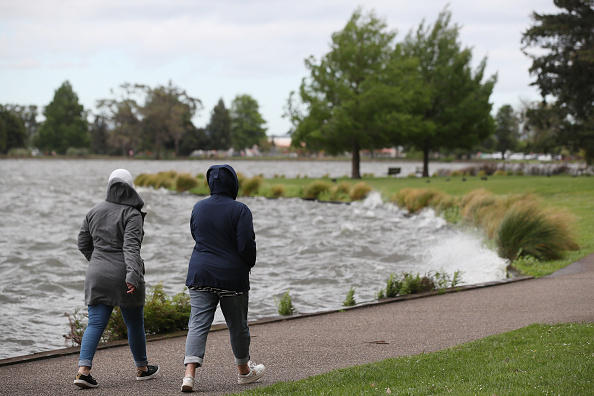Auditor-General John Ryan says effective public accountability will be critical to the success of the Government’s Three Waters reforms.
In a submission to the Finance and Expenditure Committee on the Water Services Entities Bill, the Auditor-General expressed concern that the transfer of accountability from local authorities to Water Services Entities (WSEs) would mean a significant reduction in audit scrutiny.
“Currently, water services are delivered and managed by local authorities, and accounted for in local authorities’ long-term plans (LTPs) and annual reports, which are audited by the Auditor-General,” said Mr Ryan.
“The Bill proposes that water services will be delivered by WSEs. Under the Bill, WSEs are accountable in various ways (and to various extents) through annual reporting to a Regional Representative Group, through oversight by the Minister, and through new engagement practices with consumers and communities.”
WSEs cannot be held to account by ratepayers like local authorities are, nor can they be held accountable by Parliament because they are not Crown entities this makes direct accountability to their respective communities more important, he said.
“I am concerned about whether these mechanisms will be sufficient, individually or collectively, to enable comprehensive and effective public scrutiny and accountability. I recommend that the Committee seek further information from officials about the effectiveness of these public accountability arrangements.”
Mr Ryan said that for WSEs to be genuinely accountable to local communities, engagement must be coherent, consistent, and integrated with the WSE’s planning and reporting requirements.
“However, the Bill does not currently clearly link the findings from the consumer engagement stocktake with corresponding reporting requirements, such as the statement of intent. There are also some limitations in the accessibility of the mechanisms proposed for public reporting,” he said.
“I suggest that further consideration is given to integrating consumer and community engagement with reporting requirements in key accountability documents, so that there is clarity on how the outcomes of such engagement are addressed by the WSEs.”

Mr Ryan said the Bill proposed no equivalent requirement for a WSE’s planning documents to be audited. There is also no proposed audit scrutiny of the WSE’s engagement with local communities, he said.
“I consider this to be a serious diminution in accountability to the public for a critical service. I strongly recommend that the Committee consider the requirements for independent assurance in all aspects of the operations of these new entities, and whether WSEs should be required to produce a 10-year plan similar to LTPs that is also audited.”
The Auditor-General also raised concerns about performance measures in relation to Three Waters services, which local authorities currently report against in their LTPs and annual reports.
“The Bill does not include an equivalent rule-making power, which presents another gap in holding WSEs accountable,” said Mr Ryan.
“This may further reduce the effectiveness of the public accountability arrangements because it limits the quality of information available for public scrutiny.
“The roles of the Regional Representative Group and the Board may overlap.”
Mr Ryan said the Bill proposed a unique governance structure consisting of a Regional Representative Group that appears to have both an oversight and a governance role over a WSE, in addition to a WSE Board.
“To avoid the risk of overlapping accountabilities, the Regional Representative Group’s intended role, and the purpose of the statement of intent versus the statement of strategic and performance expectations, should be clarified. The role of the chief executive and the Board could also be more clearly delineated.”
He said the proposed accountability arrangements risked creating a fragmented approach to the planning and delivery of water services.
“The planning and reporting documents of an entity should tell an integrated and coherent story. Currently the Bill provides for nine planning and reporting documents.”
“It is unclear how they align and support each other, given that they cover different timeframes. In my view, there is scope to simplify these arrangements while better aligning reporting and review times for more overall coherency.”
The Auditor-General said integration with the wider, system-level planning was needed.
“Local authorities are required to develop an infrastructure strategy that encompasses, at a minimum, assets for the Three Waters services, flood protection and control works, and the provision of roads and footpaths.”
“With the creation of the WSEs, it is important to maintain integration with local planning and other reforms, such as the Resource Management Act.
“The Bill currently contains no explicit requirements to connect WSEs’ planning with wider planning processes. Although this might be covered by subsequent legislation, I suggest that clarity is sought on how WSEs are expected to work with the wider system.”
Mr Ryan said his Office was in ongoing discussions with the Department of Internal Affairs about councils’ influence over water assets and whether any single council or group of councils will control any of the WSEs (balance sheet separation).
“The Bill alone does not provide enough information for us to form a view about these matters,” he said.
“Overall, I am concerned that, as currently drafted in the Bill, the accountability arrangements and potential governance weaknesses, combined with the diminution in independent assurance noted earlier, could have an adverse effect on public accountability, transparency, and organisational performance.”



